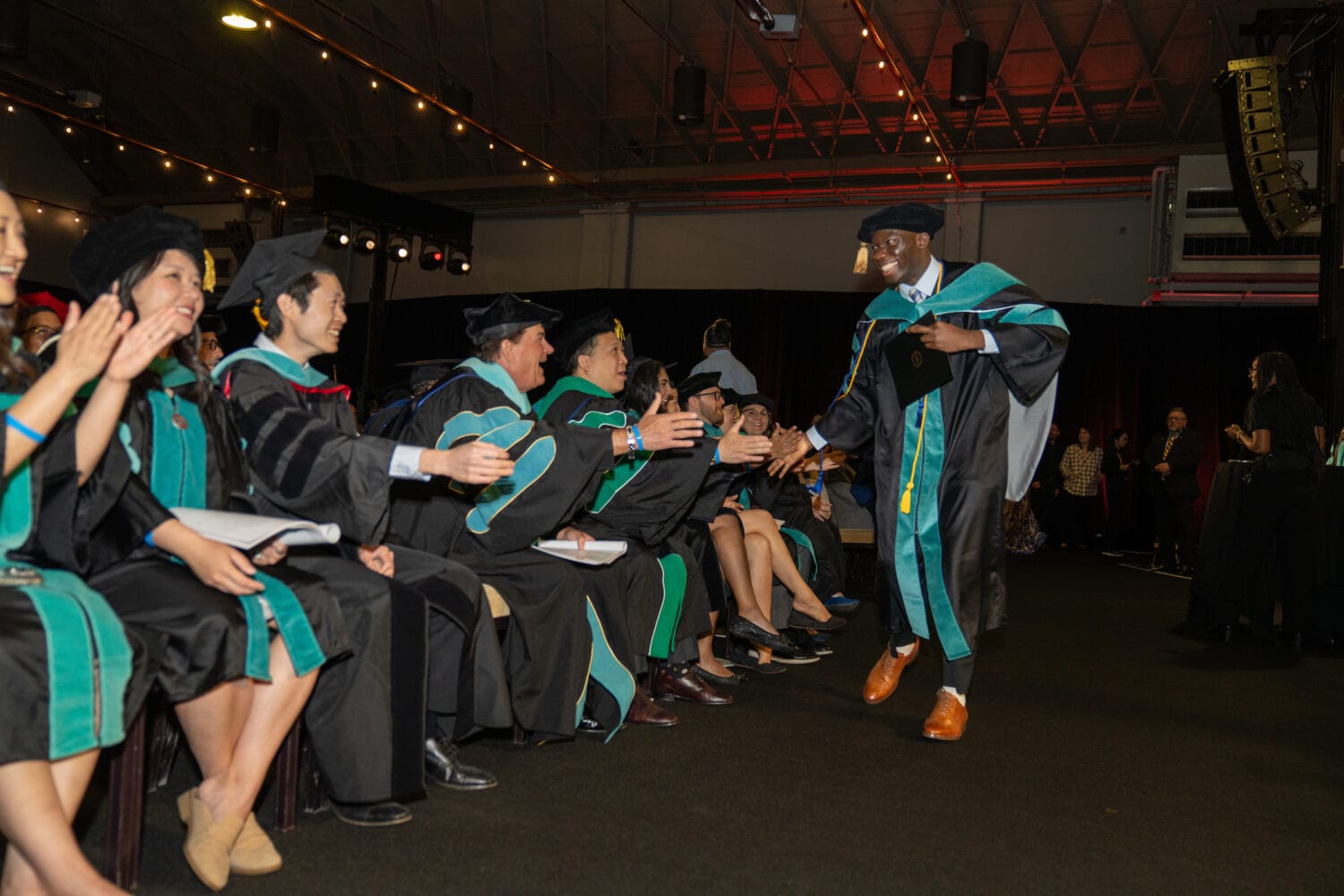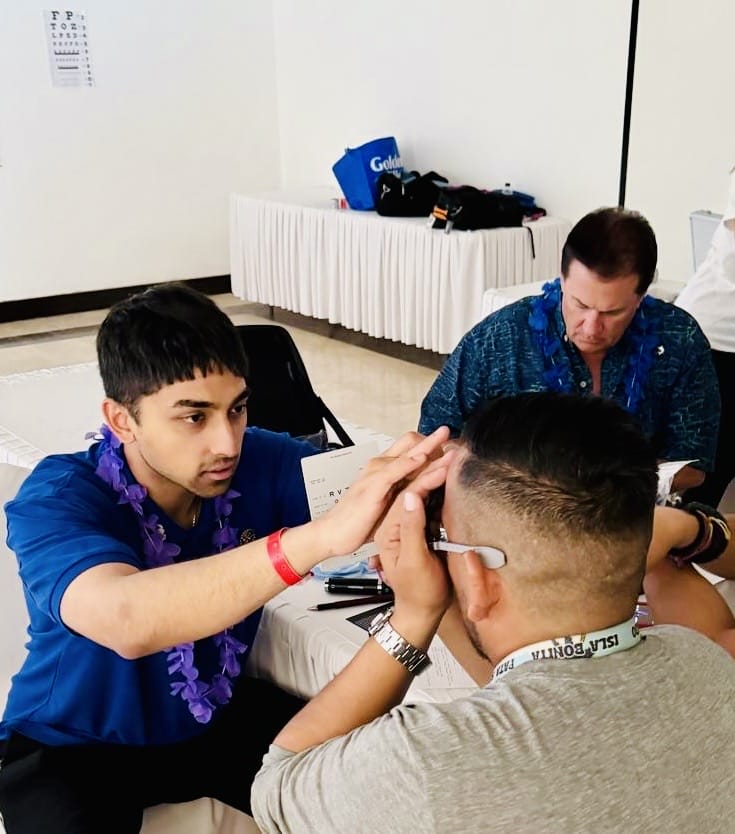WesternU's Eye Care Center offers comprehensive children's vision care
Regardless of their age or grade level, students need a comprehensive eye exam in order to ensure they perform their best academically. Western University of Health Sciences is joining the College of Optometrists in Vision Development in promoting August as National Children’s Vision & Learning Month. The goal of this national observance is to educate parents and educators about the critical link between vision and learning.
Case in point: A 23-year-old Western University of Health Sciences student finished undergraduate college with good grades. She had 20/20 vision, but after enrolling at WesternU, she started to get eye strain after 15 minutes of reading. She would read a paragraph, but then not remember the information it contained, and she also suffered from headaches a couple times a week. After her eye strain started, she noticed words would move around on her.
“We found she had normal refractive condition. She was not near-sighted or far-sighted, but she had eye-teaming difficulties that made words seem as if they were moving around,” said Stuart Mann, OD, FCOVD, College of Optometry Chief of Pediatric Services and Assistant Professor.
“She also had focusing problems. Her eyes would lock up while focusing on reading close, causing eye strain and blurriness when she tried to see far away,” he said. “We prescribed her reading glasses for sustained close work, and vision therapy to improve her eye-teaming ability and tracking skills.
“Her eyes were out of tune, but with vision therapy she went from a sputtering car to a Ferrari.”
Research has demonstrated that vision is a contributing factor to an individual’s ability to attend and respond to classroom instruction. WesternU’s Eye Care Center, at 795 E. Second St., Pomona, Calif., has the professional expertise and understanding to diagnose and treat a variety of vision-related problems that children and adults face. A comprehensive vision exam will determine if a patient can track across a page properly, sustain attention, and focus with minimal effort.
“If it takes effort to do any of those things, that takes away from reading,” Mann said.
Call the Eye Care Center at 909-706-3899 for more information or to schedule an appointment.
Despite volumes of evidence-based optometric research, many pediatricians and ophthalmologists continue to state that vision has nothing to do with learning, referring parents to psychologists and learning specialists. However, the limitations caused by convergence insufficiency and similar visual disorders can be disabling during reading and computer use, according to the definitions of disability in the Americans with Disabilities Act. These disorders are easily treatable with optometric vision therapy.
It is vital that parents take the time to learn all of the signs that a vision problem may be interfering with academic performance. When a child has a vision problem, they do not outgrow it, and despite extensive tutoring or special services at school, very little improvement occurs.
Take five minutes in honor of August being National Children’s Vision and Learning Month and visit the website for the College of Optometrists in Vision Development; then spread the word and share the information: www.covd.org.



